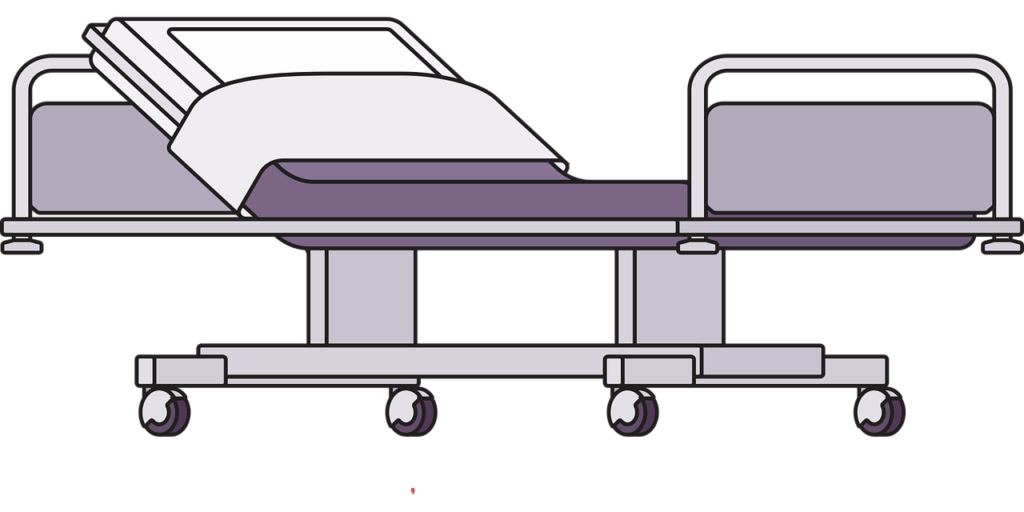The inpatient ward at Kamala Hospital is designed to provide comprehensive and specialized care for patients who require overnight stays for medical treatment, observation, or recovery. Our dedicated team of healthcare professionals strives to ensure the well-being, comfort, and safety of every patient under our care.
What is Inpatient Care?
The meaning of Inpatient Ward Care is the medical service provided by health care providers to a person who requires medical attention and is officially admitted as a patient in a hospital or healthcare facility to be treated back to health. Therefore, the term “inpatient” explains the location of medical treatment—inside the hospital or health care facility.
The ultimate goal of inpatient care is to diagnose and treat active disease so that the patient will have their base level of good health prior to the disease or condition if possible. If that is not possible, the goal of inpatient care will be to address the immediate medical needs of the patient until the patient is medically stable and can be discharged and cared for outside of the hospital or health care facility.
Inpatient care is the process of achieving medical stability for a sick patient. Discharge of the patient from the hospital or health care facility is usually at the point where the patient is medically stable, at which point the physical state of the patient has reached a maximum point of medical improvement and will not improve with more care or time. Unfortunately, inpatient care can result in the loss of life despite the best efforts by all parties involved in the medical care of the patient.

Services Offered:
- Round-the-Clock Care: Our inpatient ward operates 24/7, offering continuous medical care, monitoring, and support to patients admitted for various health conditions.
- Specialized Medical Services: We provide a wide range of specialized services, including medical/surgical care, intensive care, maternity care, pediatrics, and more, catering to diverse healthcare needs.
- Dedicated Nursing Staff: Our skilled and compassionate nursing staff is committed to delivering personalized care, administering medications, monitoring vital signs, and assisting with daily needs.
- State-of-the-Art Facilities: Equipped with modern medical technology, our inpatient ward ensures that patients receive advanced diagnostic and treatment modalities for their conditions.
Benefits of Inpatient Care:
There are many benefits to receiving care in an inpatient ward, including:
- Round-the-clock care: Patients receive 24/7 care from nurses, doctors, and other healthcare professionals.
- Access to specialized care: Inpatient wards have specialists on staff who can provide care for complex medical conditions.
- Monitoring and treatment: Patients in inpatient wards are closely monitored and receive the treatment they need to improve their health.
- Pain management: Inpatient wards have access to pain medication and other pain management techniques.
- Emotional support: Patients in inpatient wards receive emotional support from nurses, doctors, and other staff members.
Characteristics of an Inpatient Ward:
- Overnight Stays: Patients admitted to an inpatient ward typically require more intensive or specialized care that cannot be provided on an outpatient basis. They stay in the hospital for one or more nights, depending on their medical condition and treatment needs.
- Continuous Monitoring and Care: Inpatient wards provide 24/7 medical supervision, monitoring of vital signs, administration of medications, and specialized care by healthcare professionals.
- Specialized Services: These wards offer a wide range of medical services, including acute care, surgical care, intensive care, maternity care, pediatric care, mental health care, and more, based on the hospital’s facilities and specialties.
- Multidisciplinary Approach: Patients in inpatient wards benefit from a team-based approach to healthcare. This often includes collaboration among physicians, nurses, specialists, therapists, social workers, and other healthcare professionals who work together to develop and implement comprehensive treatment plans.
- Rehabilitation and Recovery: Inpatient wards provide an environment conducive to patient recovery and rehabilitation, especially after surgeries, acute illnesses, or treatments that require close medical supervision and support.
Inpatient wards play a crucial role in providing specialized, comprehensive, and continuous care to patients with acute or complex medical conditions that require closer monitoring, treatment, and care than what can be provided in an outpatient setting.
These wards ensure that patients have access to timely and continuous medical attention, specialized treatments, and rehabilitation services while they are hospitalized for their health needs.
Procedures in Inpatient Care
Because inpatient care is for patients who are not medically stable without the assistance of medication or procedures, the procedures involved can be more invasive in order to assist or correct natural body systems that are failing or affected. Invasive procedures include cavity suctioning, wound draining, and intravenous therapy, where surgical instruments and tools puncture the skin and into a part of the body of the patient.
Inpatient care for a patient involves a direct plan of care that is prepared by a collaborative group of health care providers, including doctors, specialists, nurses, nurse practitioners, physician assistants, and pharmacists. Each party has distinct functions, but the overall goal is to get the patient to a point where he or she is medically stable.
In order to treat patients efficiently, an accurate diagnosis has to be made as part of the direct plan of care. Common noninvasive inpatient procedures for diagnostic and monitoring purposes include x-rays, MRIs, CT scans, ultrasounds, and electrocardiograms (EKG). Monitoring in this way helps providers determine how best to manage and treat disease. Monitoring is also used to assess patient improvement during care, the efficacy of care, and to assess the medical state of the patient at any given time.

